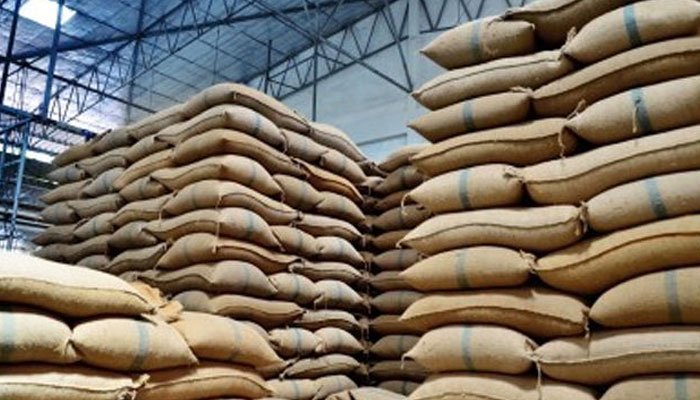Financial experts criticise government for 'ill thought out' virus relief plan
Allocation of Rs280bn for wheat procurement just an eyewash, claim experts
March 26, 2020

ISLAMABAD: The government earlier this week included Rs280 billion for procurement of eight million tonnes of wheat as part of a Rs1.25 trillion relief package even though the procurement is part of a routine operation undertaken jointly by Passco and the provinces every year, reported The News on Thursday.
“It’s a routine operation undertaken by Passco and provinces jointly every year but the government, in an effort to balloon the relief package, decided to include procurement of wheat as part of the relief package,” top official sources confirmed to The News on Wednesday.
In the budget for 2019-20, the government had earmarked only a Rs15 billion subsidy for Passco, including Rs2 billion for wheat operations, Rs5 billion for wheat reserved stocks, and Rs8 billion for wheat supply to Gilgit-Baltistan.
Also read: Pakistan's confirmed coronavirus cases jump to 1,102
This year, Passco and the provinces would have had to get loans for commodity operations from different banks with the help of the Ministry of Finance to get credit lines from banks, The News claimed.
“In any way, the government cannot declare the procurement a part of budgetary relief and that it is going to provide to people in efforts to mitigate the losses caused by COVID-19 virus,” said the official.
Federal Minister for National Food Security Khusro Bakhtiar was asked to comment on the allegations, but could not be contacted.
Meanwhile, independent economists, commenting on the relief package, told The News on Wednesday that there was limited additional funding available under this package as the finance ministry made adjustments only with the purpose to balloon the overall figures.
Also read: Global coronavirus death toll surpasses 20,000
The Ehsaas Programme, experts said, possessed an allocation of Rs190 billion, out of which the utilisation stood at Rs50 to Rs60 billion, and the remaining resources were diverted towards providing monthly stipends to the poorest segment of the society.
Experts added that the government economic team lacked clarity of thoughts as the State Bank of Pakistan (SBP) was cutting down policy rate in the range of 225 basis points through two Monetary Policy Committee meetings in a short span of time.
They argued that the policy rate should have been brought down into single digits within the range of 5 to 6 percent in one go in the aftermath of the coronavirus because no one was willing to make any investments in the economy at this point in time.
Also read: Young adults form majority of positive coronavirus cases in Pakistan, reveals SAPM Mirza
Experts noted that no one was ready to make small investments, so expecting that industrialists would go for new investments simply indicated that those at helm of affairs did not have any clue about Pakistan’s realities on the economic front.
They stated that the Ministry of Finance used the same old methods to undertake number crunching, but there was no policy behind these efforts. Experts were of the view that there was a requirement of allocating resources towards health and medical provisions, as well as toward the poor segment of the society.
Originally published in The News









